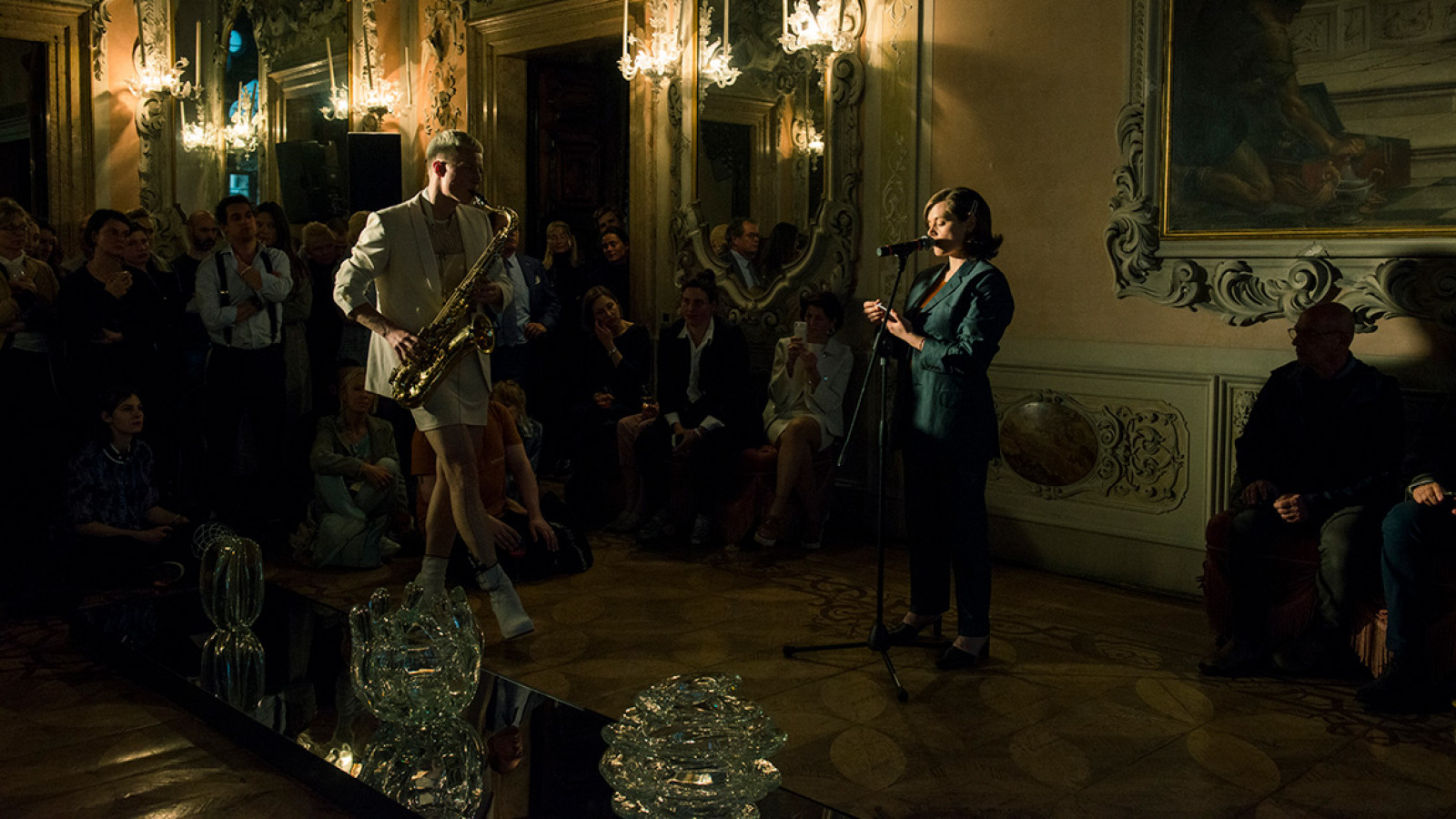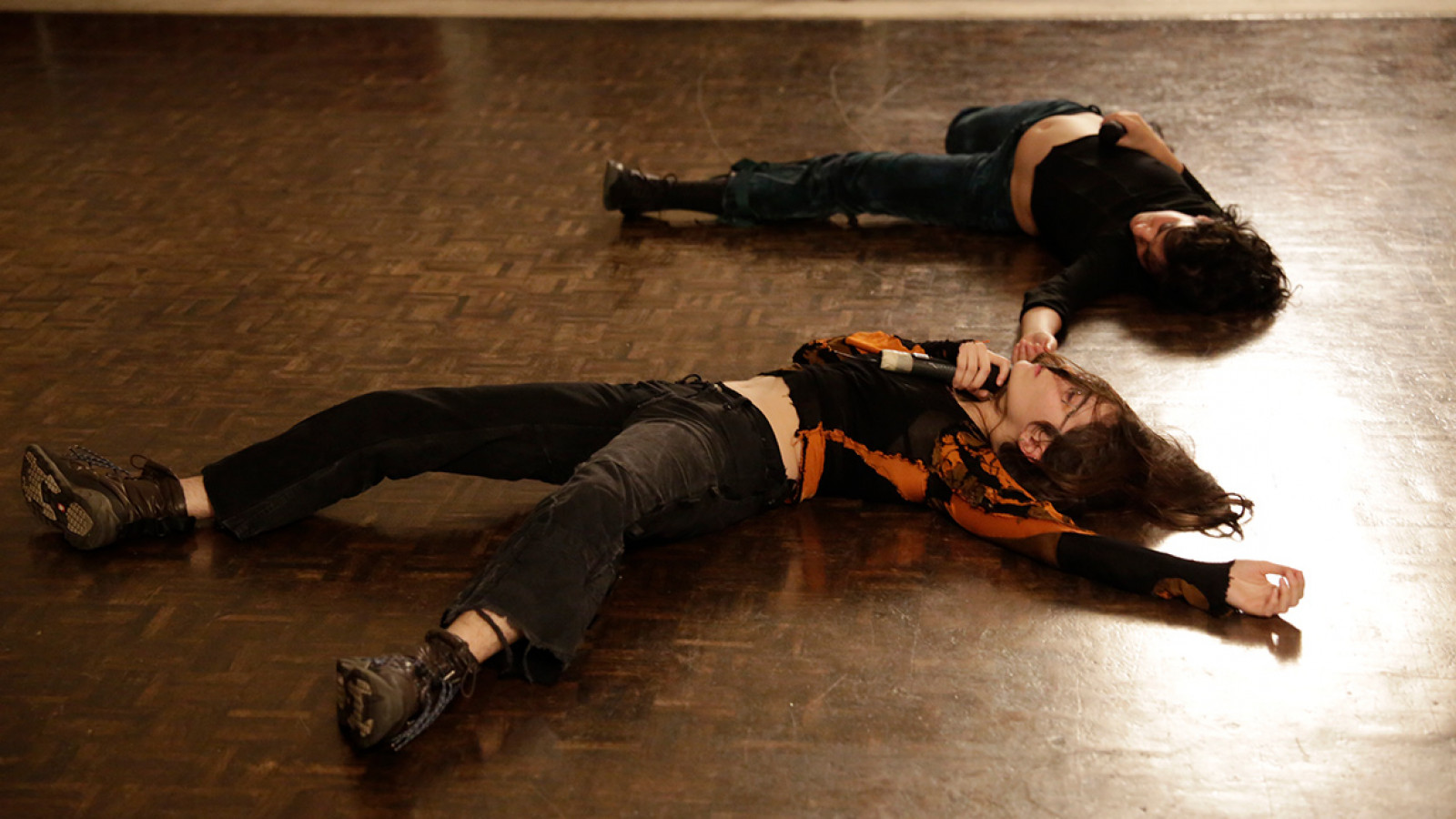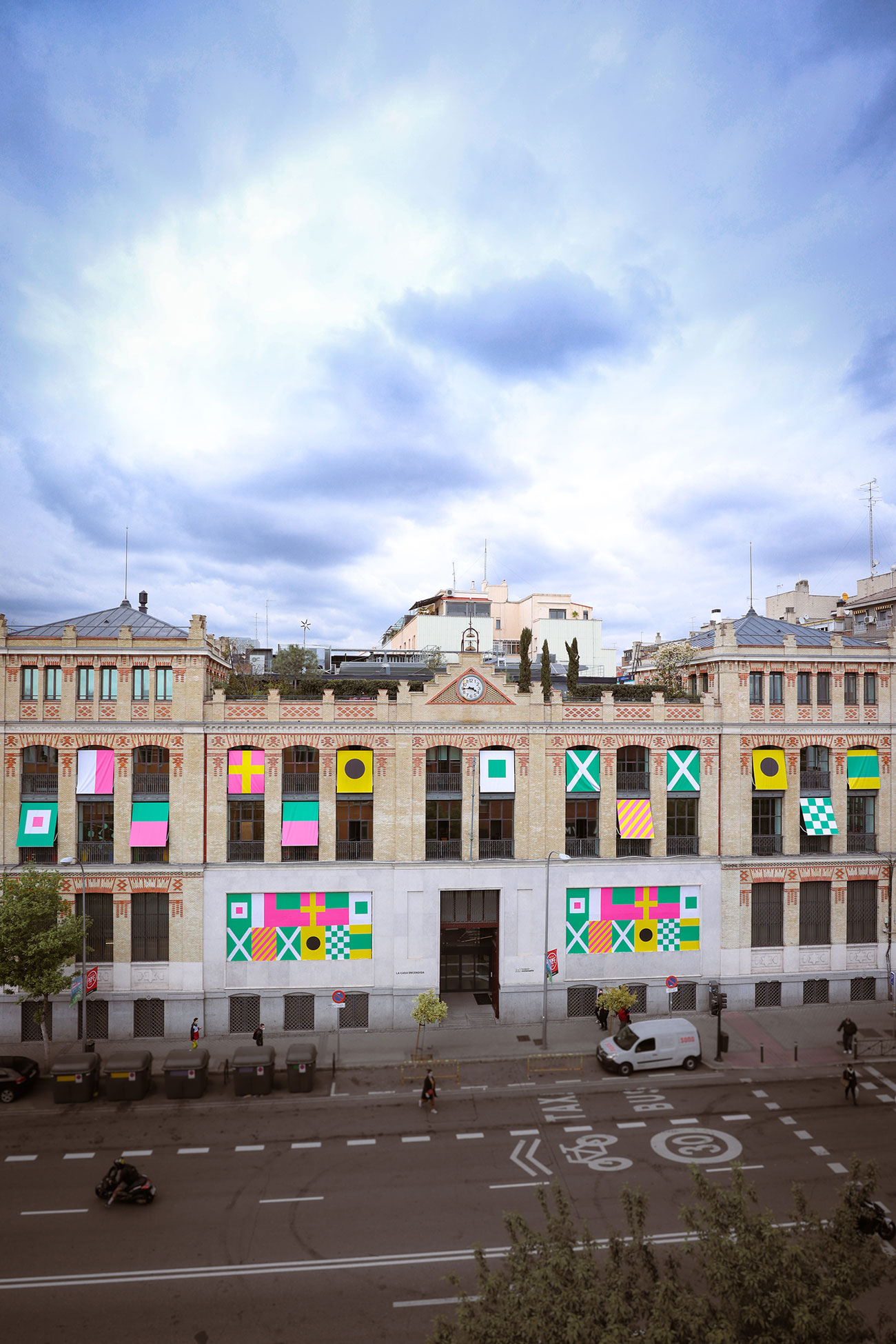Waiting to Reconnect, by Hanne Lippard and Claudia Pagès
| Duration: | 1 hour |
Waiting to Reconnect is the fifth episode in An Involuntary Trace, the exhibition cycle which the collective This is Jackalope has been curating in Room A throughout 2021. It adopts the form of a dual exercise in creating a deliberate failure of language.
The capacity of communication is destabilised: on the one hand through constant repetition (Hanne Lippard), which inevitably breaks down the linear perception of time; and on the other, due to the recurring use of the gerund (Claudia Pagès), which puts us in a time of ongoing action that simultaneously becomes a temporality nullified by jurisdictional language, once again sabotaging the communicative role of words. The body and humanity are put in check.
Claudia Pagès presents Hands Failing, a 360-degree choreographic and textual sketch in the same vein as her work of the last few months, during which time she has been exploring the new freight distribution systems and the gentrification economy. In this piece she turns her attention to shipping and its association with jurisdictional language, where the use of the gerund is both constant and violent. The gerund is a verb form that dehumanises and objectifies the subject: shipping, tracking, processing, requesting, requiring. Governments also activate an entire apparatus to preserve the status of the gerund and create limits and forms of individualisation that hamper collective demands. Shipments and the law resort to the use of non-personal verb forms, becoming the verb that signifies “tied” and “nightmare”. When you're in, you're in the gerund.
In Talk Shop, Hanne Lippard combines orality and textuality with the idea of loop and repetition to explore the notion of time, its relationship with the world of work today, and its personification through the experience of the human body. The piece also examines the parallels between discourse and time as regards the absence of form; like currency exchange rates, time fluctuates in both human and economic relations, simply waiting to collapse at some point in the future. Commodified by the current ubiquitous nature of productivity, the voice has become tangled up with the machine and entered the service sector in the form of intelligent personnel, like the voices we hear in satnavs, smart speakers and voicemail systems. At a time when words (Twitter, Instagram) and knowledge (Wikipedia) are anonymous, and when the female voice is erotically disembodied (podcasts, dating apps), Lippard uses corporal means to explore this latter phenomenon in particular. Her performance will address the notion of anonymity as the spearhead of the digital economy, here juxtaposed with the anonymity of the audience.
Hanne Lippard and Claudia Pagès reflect on the voice and communication in our times. Their proposals establish dialogues with the long and rich historical tradition of the performative use of the voice and the linguistic deconstruction of language, whose genealogy is not only found in music but in the spoken word, theatre, sound, poetry and art as well. Both artists are interested in the bio- and socio-political aspects of language, and the economies of the body and desire. They explore themes such as the construction of identity, representation, isolation and proximity, capitulation and resistance. At the same time, they propose a spatial play and choreography of language, exposing its internal structures and hierarchies, the architectures of the voice, its different narrative layers, the discrepancy between form and content, and the pure reinvention of the construction of folk tales and popular histories. Both works are essentially based on text, published through printed matter, installations, readings out loud and performances, generating a specific language related to orality and the spoken text. Their live works are almost like recitals in which their bodies navigate texts, poems and songs in a concrete landscape. Their pieces test audiences’ patience and perception by challenging them to stop and listen.
Claudia Pagès (Barcelona) has given readings and performances at institutions like La Casa Encendida, Madrid (2021, 2016), Es Baluard, Mallorca (2021), Perdu, Amsterdam, (2020), Rile, Brussels (2020), The Wheelshunters Social Club & Jupiter Woods, London (2019), HAU2 & CreamCake, Berlin (2019), CentroCentro, Madrid (2019), MACBA, Barcelona (2019), Les Bains, Paris (2019), Gasworks, London (2018), Sharjah Art Foundation, Sharjah, UAE (2018), CA2M, Madrid (2017), RAI10/Arthena Foundation, Düsseldorf (2016), and Moderna Museet, Stockholm (2015). She has undertaken residencies at Rijksakademie van beeldende kunsten, Amsterdam (2020-2021), Jupiter Woods, London (2019), Bulegoa, Bilbao (2018), Nido, Campo Abierto, La Rivera, Uruguay (2018), LiveWorks Centrale Fies, Trento (2017), Gasworks, London (2017), CA2M and La Casa Encendida, Madrid, (2016), and she has received a grant from the Mondriaan Fonds Werkbijdrage Jong Talent in the Netherlands (2016-2017).
Hanne Lippard (Norway) lives and works in Berlin. Her practice explores voice as a medium. Her works address the meaning that certain verbal interactions have acquired today, and their current loss of meaning. An outstanding aspect of her work is the close attention she pays to the female voice and how it is invariably associated with care (the voice of emotional or domestic space), announcements (prophesy, fortune telling) or hysteria. Her most recent performances include Le language est une peau, FRAC Lorraine, Metz (2021), Contact, Mood, Share at MHKA, Antwerp, (2021), X, Frac des Pays de la Loire, Carquefou (2020), RIBOCA2, Riga (2020), and ART 4 ALL, Hamburger Bahnhof, (2020).
-
Hoja de sala (pdf, 45.51 KB)
Download


